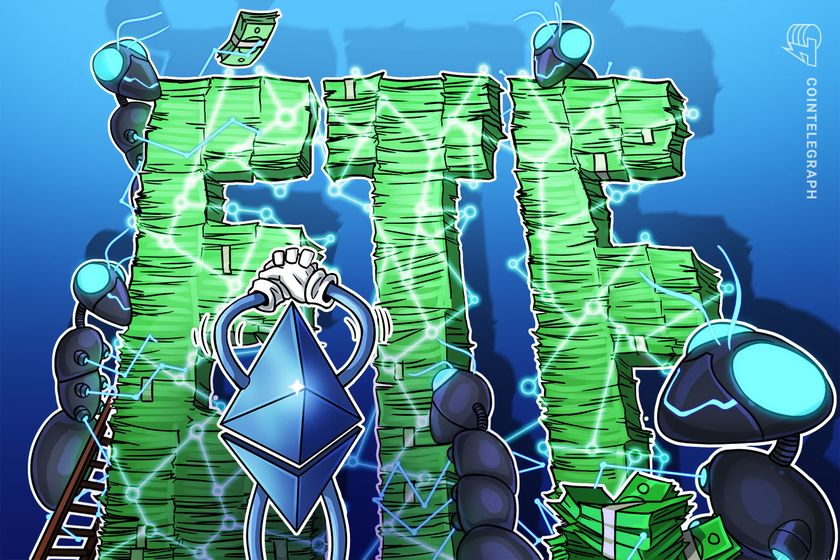Can quantum computers mine Bitcoin faster?

Quantum computers cannot mine Bitcoin faster than classical computers, but they have the potential to do so in the future.
Can quantum computing help reduce Bitcoin’s energy consumption?
While quantum computing could potentially reduce Bitcoin’s energy consumption and improve mining efficiency, it’s important to consider the potential security risks and continue to develop quantum-resistant algorithms to ensure the integrity of the Bitcoin network.
Quantum computing has the potential to significantly reduce Bitcoin’s energy consumption by improving the efficiency of Bitcoin mining. Quantum annealing, a type of quantum computing, can speed up the process of solving the hash function needed to mine BTC.
Quantum annealing is a technique used to solve optimization problems using quantum mechanics. Miners may be able to solve the hash function significantly more quickly and efficiently than existing ASIC miners by using quantum annealing.
However, the Bitcoin network’s security mainly relies on cryptography, which may be subject to attacks by quantum computers. This has raised questions regarding the quantum resilience of the encryption techniques used by Bitcoin. Some encryption algorithms used in Bitcoin mining, such as SHA-256, are considered quantum-resistant. Still, others, like the public key cryptography used for wallet addresses, could be vulnerable to quantum hacking.
Despite the potential advantages of using quantum computing for Bitcoin mining, ensuring the network’s security is not jeopardized is critical. To keep the network safe from quantum hacking, researchers focus on creating quantum-resistant algorithms that can be utilized in Bitcoin mining. It is also important to remember that not all hash functions can be solved by quantum annealing; some may still require classical computing techniques.
For instance, the National Institute of Standards and Technology developed SHA-3 (Secure Hash Algorithm 3), which is considered quantum-resistant because it uses a sponge construction and a permutation-based architecture. However, there is no mathematical evidence of this.
Can a quantum computer hack Bitcoin?
By exploiting its higher processing capacity to defeat the encryption that safeguards private keys and transactions on the Bitcoin network, a quantum computer could theoretically hack Bitcoin. However, the current state of quantum technology is not yet advanced enough to pose a significant threat to Bitcoin’s security.
Quantum computers might make public-key cryptography less secure because of their capacity to answer some mathematical problems far more quickly than classical computers. For example, Shor’s algorithm — a quantum algorithm — can factor large integers exponentially faster than classical algorithms. Factoring large integers is the basis of many public key encryption schemes, including the one used in Bitcoin.
The public-key cryptography employed in Bitcoin and other cryptocurrencies might hypothetically be cracked if a quantum computer had the processing capability to carry out Shor’s algorithm. An attacker with a quantum computer could potentially steal BTC by computing the private key corresponding to a public key used to receive Bitcoin. The big prime numbers used to generate the public-private key combination could be factored in to achieve this.
However, it is crucial to remember that quantum computing is still in its infancy and lacks the power to carry out Shor’s algorithm at the scale necessary to decrypt Bitcoin. Although small-scale quantum computers have been shown to factor in small numbers, there is still a long way to go before a large-scale quantum computer that breaks Bitcoin’s encryption can be built.
In addition, the Bitcoin network is constantly developing to counter possible security risks, such as the risk presented by quantum computers. For instance, a hash-based signature system like the Lamport signature method might make Bitcoin more resilient against quantum attacks. Researchers are also investigating the use of post-quantum cryptography, which was created to be resistant to quantum computers.
The Lamport signature method is considered one of the post-quantum cryptographic methods that can be used to secure digital signatures from potential threats from quantum computers. This technique generates several pairs of public and private keys to verify digital signatures using a one-time hash function.
The communication is protected against efforts at quantum hacking since each pair is used to sign a distinct section of the message. Due to the one-time nature of the hash function, even if an attacker gets hold of one of the private keys, they cannot use it to forge other signatures or find the other private keys.

How efficient are quantum computers in Bitcoin mining?
Complex mathematical problems must be solved throughout the Bitcoin mining process, which can be accomplished significantly more quickly using quantum computers than with classical ones. Yet, it is currently unclear how quantum computing may affect Bitcoin mining.
While quantum computers may increase mining productivity, they may also increase the risk of quantum hacking on the Bitcoin network. This is because many public key cryptography-based encryption techniques used to protect Bitcoin are susceptible to attack by quantum computers. Quantum hacking is a cyberattack that uses quantum computing to break through cryptographic systems.
Public key cryptography is a mathematical algorithm allowing two parties to communicate securely without exchanging a secret key beforehand. The approach is based on the complexity of some mathematical tasks, such as computing discrete logarithms or factoring huge integers, which are thought to be challenging for traditional computers to tackle well.
Researchers are investigating using quantum cryptography and quantum-resistant algorithms to address this issue. These techniques could help safeguard the Bitcoin network in the future since they are more resistant to attacks from quantum computers.
Furthermore, there are currently no quantum computers that can mine Bitcoin more effectively than conventional computers. But, as quantum technology develops further, it is conceivable that quantum Bitcoin mining may become a reality in the future.
Related: Cryptocurrency vs. quantum computing: A deep dive into the future of cryptocurrencies
Quantum computing, explained
Quantum computing is an emerging technology that leverages the principles of quantum mechanics to process information. Quantum mechanics is the foundation for quantum computing, allowing for the special qualities of superposition and entanglement that could make quantum computers more powerful than conventional computers.
Quantum computers use quantum bits, or qubits, which can exist in numerous states simultaneously, as opposed to classical computers, which use bits to represent information as either a 0 or a 1. As a result, they can carry out some computations far more quickly than traditional computers.
Quantum computing may have a significant influence on cryptography. Today’s encryption techniques frequently rely on the difficulties of factoring huge numbers or resolving other challenging mathematical puzzles for conventional computers. However, the speed at which quantum computers could solve these puzzles might make current encryption techniques attackable.
Another area where quantum computing could have an impact is in Bitcoin mining. Bitcoin mining involves complex arithmetic problems that must be solved to validate transactions and add them to the blockchain. However, mining Bitcoin (BTC) demands a lot of processing power, which is why specialist equipment and software are needed. Quantum computers might be able to handle these issues considerably more quickly than traditional computers, which might make mining BTC more efficient.
Nonetheless, it is crucial to remember that quantum computers are not always superior to classical computers in all situations. For instance, certain operations that require sifting through a lot of data, like looking for a particular record in a database, are still better suited for classical computers. Additionally, the impact of quantum computing on cryptography and Bitcoin mining remains to be seen, with researchers still exploring the potential of this emerging technology.









